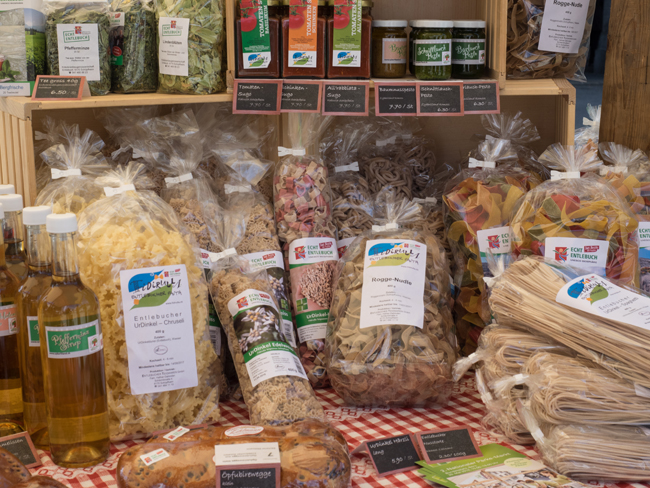Case Study
Spelt from the UNESCO Biosphere Entlebuch
Contact name
Elisa Strecke
Institution name
Swiss Parks Network
Region & country
UNESCO Biosphere Entlebuch
Summary
The local pasta manufactuer “Fidirulla” produces handmade pasta from spelt from the UNESCO Biosphere Entlebuch at the highest quality level.

Spelt from the UNESCO Biosphere Entlebuch
Netzwerk Schweizer Paerke_Nils Hviid
Background of the project
Spelt, also known as grain in the local language, is a traditional cereal in Switzerland, which yields less per hectare than wheat. Because of its loose growth, spelt fields offer field animals good shelter even in summer. The local pasta producer Fidirulla traditionally made pasta from durum wheat semolina, which had to be imported.
As an inventive manufacturer, Fidirulla was determined to produce a pasta line from a local cereal.
Solution and actions taken
With spelt, they were finally successful. The spelt pasta soon enjoyed great popularity.
The demand for spelt flour motivated local farmers to replant this cereal in the Entlebuch, where only livestock farming was practised.
The Biosphere Entlebuch has contributed significantly to the success of the Fidirulla products with the brand ‘Echt Entlebuch’ and the Markt-AG.
Other institutions or parties involved
Bruno Hafner was the initiator of the local spelt cultivation. He convinced the regional mill and the local farmers to bring the cultivation of spelt back to the region. The UNESCO Biosphere Entlebuch has been involved since the beginning of the new introduction of local spelt cultivation.
Results
Today, several hectares of spelt fields not only add a splash of colour to the landscape, but also provide habitats for field animals. The spelt flour goes directly into human consumption, which is much more efficient than with feed grain. A substantial part of the spelt grain is also used in the local restaurant business, which results in a short value chain and the added value remains in the region. The Biosphere Entlebuch also sells on a weekly basis the products with its sustainable message
Challenges
The farmers had no experience in grain farming. The Agricultural Education and Advisory Centre supported the farmers in the cultivation process. The climatic conditions in the region are not favourable for growing cereals. It is not always possible to produce the desired quality. Nevertheless the entire harvest is always taken over by the regional processors.
Lessons learned
It is only thanks to the extra price paid by customers for regional spelt that cultivation is profitable. It would not be possible to grow it at the usual market price, as yields are too small. The whole processing chain is based in the region. This guarantees regional added value, while preserving important jobs. The spelt products are also an important ambassador for the UNESCO Biosphere Entlenuch, a great example of local regional development.
Contact name
Elisa Strecke
Institution name
Swiss Parks Network